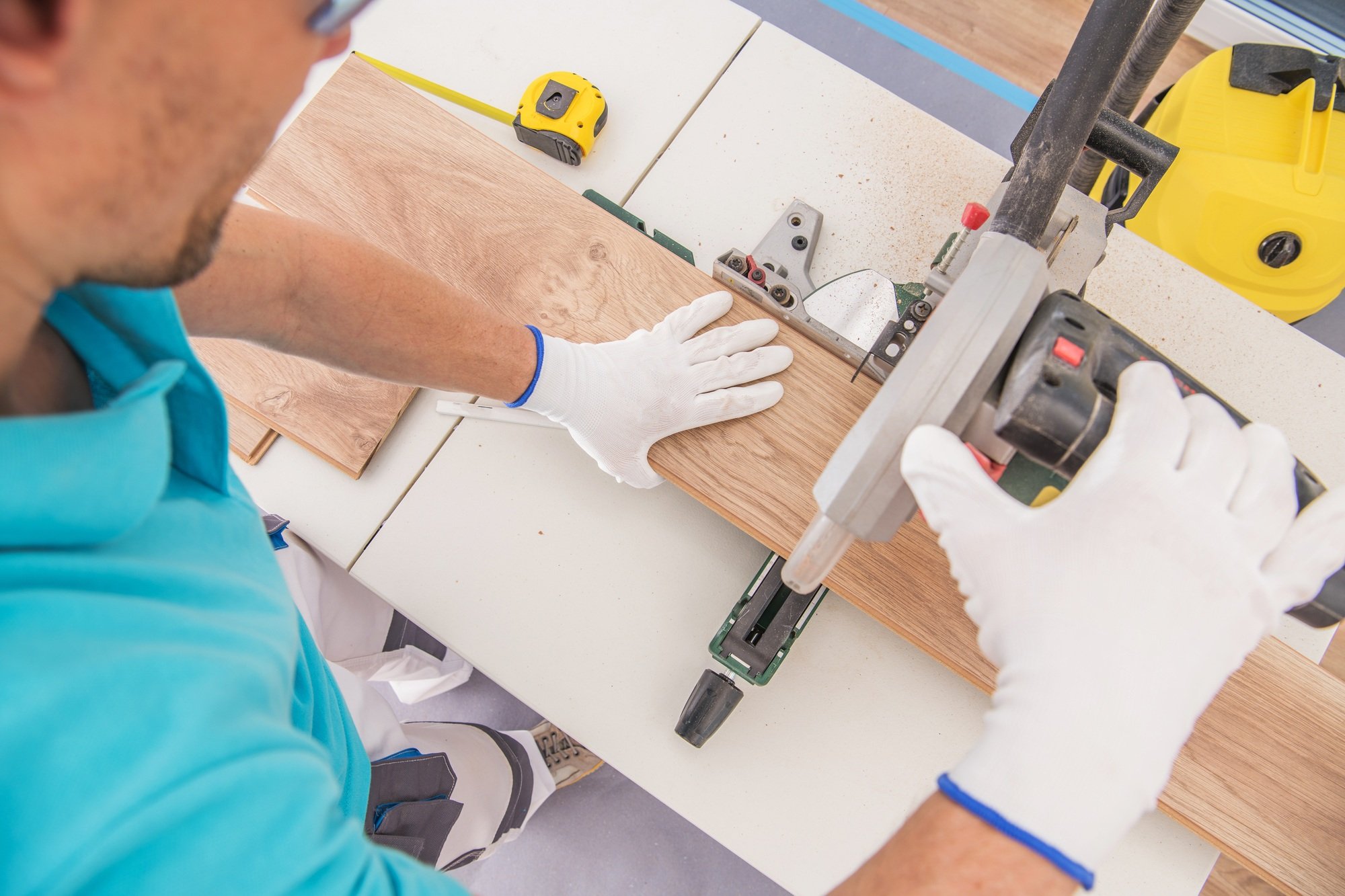Key Takeaways

- Understand Market Potential: The flooring industry is projected to grow significantly, reaching approximately $450 billion by 2026, offering vast opportunities for startups.
- Diversify Product Offerings: Consider various flooring types like hardwood, laminate, vinyl, tile, and carpet to cater to different customer preferences and increase your market reach.
- Create a Comprehensive Business Plan: A strong business plan detailing your services, target market, competition analysis, and financial forecasts is essential for guiding operations and attracting investors.
- Meet Legal & Certification Requirements: Obtain necessary licenses and certifications to ensure compliance, credibility, and safety in your flooring business operations.
- Strategic Location & Supplier Relationships: Choose a prime location to attract customers and establish reliable relationships with quality suppliers to enhance product offerings and reputation.
- Build an Online Presence: Optimize your website for SEO and engage with customers through social media to increase brand visibility and connect with your target market effectively.
Starting a flooring business can be an exciting venture. With the growing demand for quality flooring solutions, you have a unique opportunity to tap into a profitable market. Whether you’re passionate about design or skilled in installation, this industry offers a chance to turn your passion into a thriving enterprise.
Understanding the Flooring Industry

You can gain valuable insights into the flooring industry by understanding its dynamics and potential. The market presents significant opportunities for small business startups, especially for those passionate about design or skilled in installation.
Market Overview
The flooring market is projected to reach approximately $450 billion by 2026, growing at a compound annual growth rate (CAGR) of 5.5%. Residential remodeling and new construction both contribute to this growth. As homeowners focus on aesthetics and durability, there’s a strong demand for high-quality flooring solutions. Competing in this market requires identifying your niche, staying updated on trends, and providing exceptional customer service to attract repeat business.
| Year | Market Value (in Billion USD) | CAGR (%) |
|---|---|---|
| 2021 | 350 | 5.5 |
| 2022 | 370 | 5.5 |
| 2023 | 390 | 5.5 |
| 2024 | 410 | 5.5 |
| 2025 | 430 | 5.5 |
| 2026 | 450 | 5.5 |
Types of Flooring Products
You can offer various types of flooring products to meet diverse customer preferences. Key categories include:
- Hardwood Flooring: Known for its timeless appeal, hardwood offers warmth and durability.
- Laminate Flooring: Provides an affordable and stylish alternative to hardwood, easy to install and maintain.
- Vinyl Flooring: Water-resistant and versatile, suitable for high-traffic areas and moisture-prone environments.
- Tile Flooring: Durable and available in numerous designs, often used for bathrooms and kitchens.
- Carpet: Valued for comfort and warmth, available in various styles and pile heights.
Choosing the right selection of products can differentiate your small business in a competitive market.
Planning Your Flooring Business
Planning is crucial when starting a small business in the flooring industry. Each step contributes to laying a strong foundation for success.
Creating a Business Plan
A solid business plan serves as the blueprint for your flooring startup. Start by detailing your business name, location, and the services you’ll offer, such as hardwood installation or carpet sales. Include unique selling propositions (USPs) that set your business apart. Illustrate your market positioning by analyzing competitors—identify their strengths and weaknesses. Incorporate financial forecasts to project expenses, revenue, and profitability over the first few years. A business plan not only guides your operations but also appeals to potential investors.
Identifying Your Target Market
Understanding your target market is vital for your flooring business. Conduct market research to uncover current trends and consumer preferences. Identify your ideal customers, such as homeowners undertaking remodeling projects or property managers looking for durable flooring solutions. Evaluate demographics like age and income to fine-tune your marketing strategies. Assess regional demand to focus your efforts on areas with higher growth potential. By clearly defining your target market, you can tailor your services and marketing messages to meet their specific needs effectively.
Legal Requirements and Certifications
Starting a flooring business involves meeting specific legal requirements and obtaining necessary certifications to ensure credibility and compliance within the industry.
Certifications
Seek certifications that demonstrate professionalism, safety standards, and experience. For commercial flooring contractors, consider memberships with professional contracting associations such as the Associated General Contractors of America (AGC) and Associated Builders and Contractors, Inc. (ABC). These affiliations not only enhance your reputation but also connect you with a network of professionals in the industry.
Obtaining OSHA certifications, like the OSHA-10 Certification course, is essential. This certification highlights your commitment to safety and helps mitigate risks commonly associated with flooring installations.
Pursue specific flooring certifications as well. Certifications such as Certified FloRock installers, Certified Dur-A-Flex installers, and Certified polished concrete contractors can significantly increase your business’s credibility and appeal to potential clients.
Business Structure Options
Evaluate different business structure options based on your goals. Common structures include sole proprietorship, partnership, limited liability company (LLC), and corporation. A sole proprietorship is simple to establish, requires minimal paperwork, and allows for complete control. An LLC offers liability protection, separating your personal assets from your business liabilities, making it a popular choice among small business owners.
Choosing a partnership can allow you to share responsibilities and resources with another individual, facilitating growth. However, this structure requires clear agreements on roles and profit sharing.
Required Licenses and Permits
Identify and secure the required licenses and permits to operate legally. The specific requirements vary by state and locality; therefore, check with your local government and licensing authorities. Generally, you’ll need a general contractor’s license and possibly a specialty license depending on the types of flooring services you offer.
Additionally, ensure you obtain a business license to operate in your area. This license legitimizes your flooring business and may include permits for signage or zoning.
Meeting legal requirements and obtaining necessary certifications plays a vital role in establishing a strong foundation for your flooring business.
Setting Up Your Operations
Setting up your flooring business requires strategic planning and execution in key areas like location and sourcing materials.
Choosing a Location
Choosing a prime location for your flooring business is vital. Consider areas with high foot traffic and proximity to home improvement stores or construction zones. Analyze competition in your desired area to identify potential gaps in the market. Selecting a location that aligns with your target customer base enhances visibility and accessibility, which are crucial for attracting clients.
Sourcing Materials and Suppliers
Sourcing quality materials and suppliers directly impacts your business’s reputation and profitability. Research local and online suppliers who offer competitive pricing and reliable delivery. Establish relationships with multiple vendors to ensure a diverse product range—this can include hardwood, laminate, vinyl, tile, and carpet options. Compare samples and prices to guarantee you provide the best value to customers. Prioritize suppliers that demonstrate a commitment to quality and service, as this establishes trust and fosters long-term partnerships.
Marketing Your Flooring Business
Effective marketing for your flooring business is essential. It includes various strategies that attract customers and drive sales.
Building an Online Presence
You must establish a strong online presence to compete in the flooring market. It’s critical to optimize your website for search engines, ensuring it appears at the top of relevant search results. Focus on SEO techniques like keyword research, metadata, and backlink building. Regularly create high-quality content that addresses common customer questions, showcasing your expertise and product offerings. Utilize social media platforms to engage with potential customers and share visual content like before-and-after photos of flooring projects. The goal is to enhance your brand visibility and connect with your target market effectively.
Networking and Partnerships
You can leverage networking to build relationships that drive business growth. Attend industry events, trade shows, and local business meetings to meet potential partners and customers. Establish partnerships with local contractors and interior designers who may refer clients to your flooring business. Collaborating with other small businesses can enhance your market reach. Consider joining professional associations related to flooring. These connections can lead to valuable opportunities, referrals, and industry insights.
Conclusion
Starting a flooring business can be a rewarding venture if you’re ready to put in the effort. With the right planning and a clear understanding of your target market, you can carve out a niche in this growing industry. Focus on offering quality products and exceptional service to stand out from the competition.
Embrace the digital landscape to market your business effectively and build connections within your community. As you navigate the challenges and opportunities ahead, remember that your passion for flooring can lead to a successful enterprise. Take the first step today and turn your vision into reality.
Frequently Asked Questions
What is the potential of starting a flooring business?
Starting a flooring business presents significant potential due to the growing demand for quality flooring. The market is projected to reach approximately $450 billion by 2026, driven by residential remodeling and new construction needs. This provides a profitable opportunity for individuals passionate about design or skilled in installation.
What types of flooring products can I offer?
You can offer various flooring products, including hardwood, laminate, vinyl, tile, and carpet. Each type caters to different customer preferences and budgets, allowing you to stand out in a competitive market by providing a diverse selection that meets diverse needs.
How can I create a successful flooring business plan?
To create a successful flooring business plan, outline your business name, location, services, unique selling propositions, and financial forecasts. Additionally, conduct market research to understand your target customers and regional demand. This planning is vital for establishing a solid foundation for your business.
What legal requirements are needed to start a flooring business?
Legal requirements for starting a flooring business include obtaining necessary licenses and permits, as well as certifications like OSHA to ensure safety and professionalism. Choosing the right business structure, such as an LLC or partnership, can provide benefits and protections depending on your needs.
How important is location for a flooring business?
Location is crucial for a flooring business. Selecting a prime spot with high foot traffic and proximity to home improvement stores or construction zones can enhance visibility and accessibility. Analyzing competition and identifying market gaps are essential for choosing the right location.
What are effective marketing strategies for a flooring business?
Effective marketing strategies include building a strong online presence with an optimized website and engaging content. Utilize SEO techniques and social media to connect with potential customers. Networking with local contractors and participating in industry events can also enhance your market reach and business growth.
Image Via Envato



